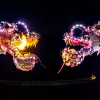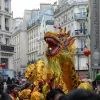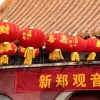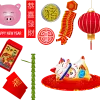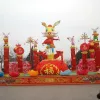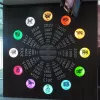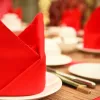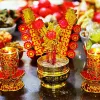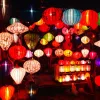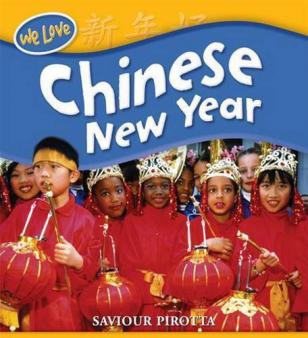Important update from TheSchoolRun
For the past 13 years, TheSchoolRun has been run by a small team of mums working from home, dedicated to providing quality educational resources to primary school parents. Unfortunately, rising supplier costs and falling revenue have made it impossible for us to continue operating, and we’ve had to make the difficult decision to close. The good news: We’ve arranged for another educational provider to take over many of our resources. These will be hosted on a new portal, where the content will be updated and expanded to support your child’s learning.
What this means for subscribers:
- Your subscription is still active, and for now, you can keep using the website as normal — just log in with your usual details to access all our articles and resources*.
- In a few months, all resources will move to the new portal. You’ll continue to have access there until your subscription ends. We’ll send you full details nearer the time.
- As a thank you for your support, we’ll also be sending you 16 primary school eBooks (worth £108.84) to download and keep.
A few changes to be aware of:
- The Learning Journey weekly email has ended, but your child’s plan will still be updated on your dashboard each Monday. Just log in to see the recommended worksheets.
- The 11+ weekly emails have now ended. We sent you all the remaining emails in the series at the end of March — please check your inbox (and spam folder) if you haven’t seen them. You can also follow the full programme here: 11+ Learning Journey.
If you have any questions, please contact us at [email protected]. Thank you for being part of our journey it’s been a privilege to support your family’s learning.
*If you need to reset your password, it will still work as usual. Please check your spam folder if the reset email doesn’t appear in your inbox.
The Chinese New Year
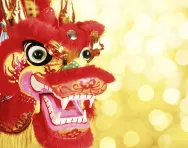
Contents:
Top facts about the Chinese New Year
Did you know
Chinese New Year gallery
About Chinese New Year
Words to know for Chinese New Year
Videos about the Chinese New Year
Just for fun
Books about Chinese New Year
Find out more about Chinese New Year
See for yourself
Quick quiz about Chinese New Year
Chinese New Year, also known as Lunar New Year or the Spring Festival, is the main Chinese festival of the year. As the Chinese use the lunar calendar for their festivals the date of Chinese New Year changes from year to year. The date corresponds to the new moon (black moon) in either late January or February. The spring festival celebrates the start of new life and the season of ploughing and sowing.
Traditionally, celebrations last for fifteen days, ending on the date of the full moon, when it is at its brightest. The first week is celebrated with visits to friends and family following special traditions designed to bring good luck. The second week ends with the Lantern Festival on the evening of the 15th day of the lunar month.
In China, the public holiday lasts for three days and this is the biggest and most extravagant celebration of the year.
The Chinese calendar is different from that used in the United Kingdom. It is made up of a cycle of twelve years, each of them being named after an animal. This is very like our signs of the zodiac or star signs. Some people believe that people born in a particular year, such as the Year of the Dog, will have some of the characteristics of that animal.
Top 10 facts
- Before the start of the festivities, Chinese people spring clean their houses to sweep away any bad luck.
- On New Year's Eve, all brooms, dustpan and brushes are put away so that good luck can’t be swept away. Houses are decorated with paper scrolls with good luck phrases such as 'Happiness' and 'Wealth'.
- People will stay up until midnight setting off fireworks to frighten away evil spirits. Red symbolises fire which will scare away evil spirits, so people dress head to foot in new red clothing.
- Children receive red envelopes full of money instead of wrapped gifts that other nationalities give at Christmas. The amount they receive is usually an even number but the amount cannot be divisible by four. In Chinese, the number 4 means death!
- Everyone goes home for the Chinese New Year celebrations, if they can. The period just before the Chinese New Year, called ‘chunyun’, is the busiest travel time of the entire year. All across China and beyond, you’ll find people on their way home to spend this time with their families.
- Lion and dragon dances are common during the Chinese New Year and it is believed that the loud drumming and clashing of cymbals will chase away bad luck and evil spirits.
- Some Chinese believe you should not wash your hair on the first day of the Chinese New Year as you would be washing away your good luck for the New Year.
- To make sure you're not ridden with debt in the New Year, the Chinese believe that all outstanding bills and monies owed to friends and family members should be paid off before the Chinese New Year.
- The Chinese believe that crying and wailing on the first day of the Chinese New Year will result in sad times for the remainder of the year. It is also frowned upon to start the New Year by swearing, getting upset or getting angry.
- White or black clothing are often avoided during the festivities as they represent the traditional colours of mourning for Chinese.


Boost Your Child's Learning Today!
- Start your child on a tailored learning plan
- English & maths resources added each week to your plan
- Keep your child's learning on track & watch their confidence grow
Did you know?
- The first day of Chinese New Year is always between January 21st and February 21st, coinciding with the first new moon – the darkest day – between these two dates. In fact, Chinese months are all reckoned by the lunar calendar, with each month beginning on the darkest day. New Year festivities traditionally start on the first day of the month and continue until the fifteenth, when the moon is brightest. In China, people may take weeks of holiday from work to prepare for and celebrate the New Year.
- The Chinese New Year calendar has 12 years in a cycle. Each cycle is named after an animal, in a particular order: rat, ox, tiger, rabbit, dragon, snake, horse, sheep, monkey, rooster, dog, and pig. When the cycle is over, on the Year of the Pig, the Year of the Rat starts and so on.
- ‘Shou Sui’ means after the New Year's Eve dinner, family member will normally stay awake during the night. Some people just stay until the midnight, after the fireworks. According to tales and legends, there was a mythical beast called ‘Nian’, which means ‘Year’. On New Year's Eve night, the ‘Year’ will come out to harm people, animals, and property. Later, people found that the ‘Year’ is afraid of the colour red, fire, and loud sounds. Therefore, on New Year's Eve at midnight, people will launch fireworks, light some fires, or even stay awake the whole night to fend off the ‘Year’.
- The Food or Kitchen God plays an important role for Chinese families prior to the Chinese New Year. His mission is the report the activities of each household to the head of the Gods, the Jade Emperor. To ensure the Food God says positive things about the family, they put honey or sweet rice on the lips of a replica or model. Small year is the 23th or 24th of the last month of the year. It is said that this is the day the Food God will leave the family to go to the heaven to report the activity of family to the Emperor. People will have some religious ceremony to farewell the Food God, including taking down and burning any paintings or pictures of the Food God. After New Year's Day, people will buy a new painting of the Food God and put it back up in the kitchen.
- There are a few ways to say ‘Happy New Year’. One way is Gong Xi Fa Cai pronounced "gong zee fah chai." Gong xi means "congratulations" and is also a way to wish one joy. Fa cai is to become rich or make money. In essence, you are wishing someone joy and prosperity in the new year. Business owners and workmates use Gong Xi Fa Cai as the usual way to say "happy new year" in Chinese.
Look through the Chinese New Year gallery and see if you can spot the following:
- A Chinese dragon
- New Year celebrations
- Traditional lanterns
- Money envelopes and other Chinese New Year objects
- Decorations in China
- The 12 animals of the Chinese Zodiac
- Families decorate their houses with lots of red
- Red New Year decorative objects
- Chinese New Year lights
- Colourful Chinese lanterns
Gallery
About
Chinese New Year is the biggest holiday celebrated among Chinese people. It is often referred to as the spring festival because it signals the beginning of spring. It is a time when families and friends get together to say goodbye to the old and welcome the new.
The exact origin of this holiday is too old to be traced, but many explanations still exist. One idea is that the holiday originated when a beast named Nian (which means ‘year’ in Chinese) came out the night before the New Year and started to prey on the people in the villages. Of course, the people were very frightened by this monster and so a brave old man went up to the beast and said to him that instead of eating the people of the villages, he should eat the other beasts that frightened these people. Nian followed the old man's request and all of the beasts were chased into the forest. The old man rode away on Nian's back; as it turns out, the man was an immortal god. The people of the village were very grateful to the old man for giving them a peaceful life. Before the old man left for good, he told the people to put up red paper decorations on their windows and doors at the beginning of each New Year because the colour red scared the beast. They also set off firecrackers to scare away the horrible beast.
Very few people know when this holiday is celebrated without looking at a traditional Chinese calendar because it never falls on the same day. The ancient Chinese used a lunar calendar. Chinese years are grouped in sets of 12 with each year being represented by an animal (zodiac sign). Legend has it that in ancient times, Buddha asked all the animals to meet him on Chinese New Year. Twelve came, and Buddha named a year after each one. He announced that the people born in each animal's year would have some of that animal's personality. For example, those born in horse years are cheerful, skilful with money, perceptive, witty, talented and good with their hands.
During the Chinese New Year's celebration, people participate in many traditional activities. The Chinese believe that as they enter a new year, they should put behind them all things of the past. They clean their houses, pay off debts, purchase new clothes, paint their doors and window panes, and even get new haircuts. These activities symbolise new life and new beginnings.
Homes are decorated with flowers and paper decorations stating wishes of prosperity, good luck, happiness, good fortune, wealth, and longevity for the coming year. Decorations of the incoming zodiac animal are also displayed. Red and gold are very popular colours to decorate with. Red represents power happiness, vitality (and scares away beasts). Gold represents wealth and good fortune.
One very important tradition of the Chinese New Year is exchanging gifts. A traditional gift that is given is small red envelopes filled with "lucky money". These envelopes are given to children by their family and friends. The red colour is used to bring good fortune, and the money inside is used by the children to buy holiday treats. These envelopes symbolise the giving of good fortune.
Food is also very important to New Year's celebrations. Families and friends get together for large feasts. Before they eat, they place their food on alters and make offerings to the gods. The foods served at these feasts vary, but what is served is always a tradition for that family. According to the Chinese New Year facts, each of the food items represents a symbol of luck:
- Bamboo shoots, egg rolls, oranges or seaweed: wealth
- Chicken: happiness and marriage
- Dried bean curd: happiness
- Eggs: fertility
- Fish served whole: prosperity
- Chinese garlic chives: everlasting, a long life
- Lychee nuts: close family ties
- Noodles or peanuts: a long life
- Seeds: having a large number of children
- Tangerines: luck
Words to know for the Chinese New Year:
Festival - a day or period of celebration, often one of religious significance
Festivities - the enjoyment or merrymaking typical of a celebration
Lunar - relating to a moon or its movement around a planet, especially the Moon in relation to Earth
Origin - the thing from which something develops, or the place where it comes from
Participate - to take part in an event or activity
Related Videos
Just for fun...
- Lots of Chinese New Year crafts for children
- Make a Chinese lantern
- Chinese New Year printable games and 3D models to make
- Make your own Chinese New Year dragon
- Chinese New Year crafts
- Some online Chinese New Year games to try
- A Chinese dragon game for younger children
- Find out about Chinese New Year customs and learn some dance moves inspired by Chinese New Year in Let's Move, presented by Justin Fletcher for BBC Schools Radio
- Chinese zodiac activities and crafts
Children's books about the Chinese New Year
Find out more about the Chinese New Year:
- A kids' video introduction to Chinese New Year
- Find out all about Chinese New Year and the Chinese Zodiac
- More information about the Chinese New Year
- Which animal’s year were you born in?
- Find out more about the lion dance, and perform your own
- Find out more about the red envelopes, and make one for yourself
- Download the British Council's brilliant Chinese New Year booklets, including stories and recipes. There's a booklet for the Year of the Pig, the Year of the Dog, the Year of the Rooster, the Year of the Monkey, the Year of the Sheep and the Year of the Horse.
See for yourself
- Major cities outside of China also celebrate the Chinese New Year. Is there a celebration taking place near you?
- Find out more about Chinese New Year preparations and celebrations on the BBC kids' website Let's celebrate
- Attend the Museum of London Docklands' Lunary New Year Festival online and watch a Taiwanese puppet performance, understand the meaning behind the traditional Lion dance, make your own lunar lantern, try a family yoga workshop inspired by animals from the Chinese zodiac story and lots more
Quick quiz about the Chinese New Year!
Q: What is the Chinese New Year also known as?
Q: What calendar do the Chinese use?
Q: How many years are in a Chinese calendar cycle?
Q: What animal represents the year 2024?
Q: Why do some Chinese people stay up all night on New Year's Eve and set off fireworks?
Q: What two types of dances are common during the Chinese New Year?
Q: What are homes decorated with during the Chinese New Year?
You will find all of the answers within this page!
